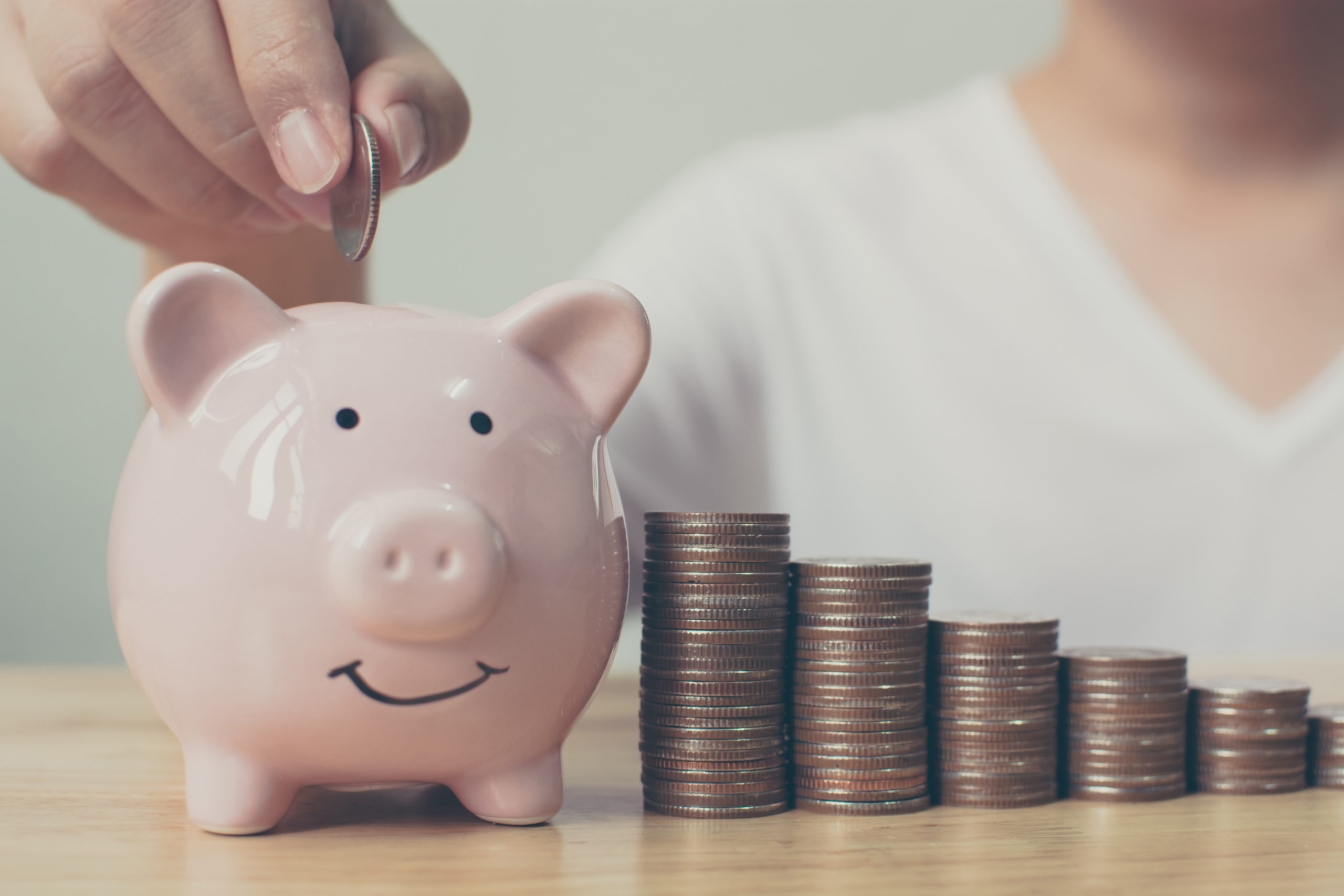
In a world that often emphasises the value of social connections, there’s an important distinction to be made between being alone and feeling lonely.
Many people associate solitude with a sense of isolation or sadness, but the truth is that being alone can be a fulfilling and rejuvenating experience. 😊
In this blog post, I will explore the nuances of being alone versus feeling lonely, understanding the importance of solitude, and embracing the positive aspects of both states.
Let’s get to it. 💕
The Difference Between Being Alone and Feeling Lonely:
Being Alone:
Being alone is a state of physical solitude, where you find yourself without the company of others. It can occur by choice or as a natural consequence of circumstances. Spending time alone provides an opportunity for self-reflection, relaxation, and personal growth.
It allows you to engage in activities that bring you joy, pursue hobbies, or simply enjoy a moment of peace. Being alone can be a deliberate choice, a time to recharge and connect with oneself. 🥰
Feeling Lonely:
Loneliness, on the other hand, is an emotional state that arises from a perceived lack of meaningful connections. It’s possible to feel lonely even in a crowded room if the connections are superficial or unfulfilling.
Loneliness is often characterised by a sense of emptiness, isolation, or a longing for deeper human connections. It’s a complex emotional experience that can impact mental and physical well-being. 😟
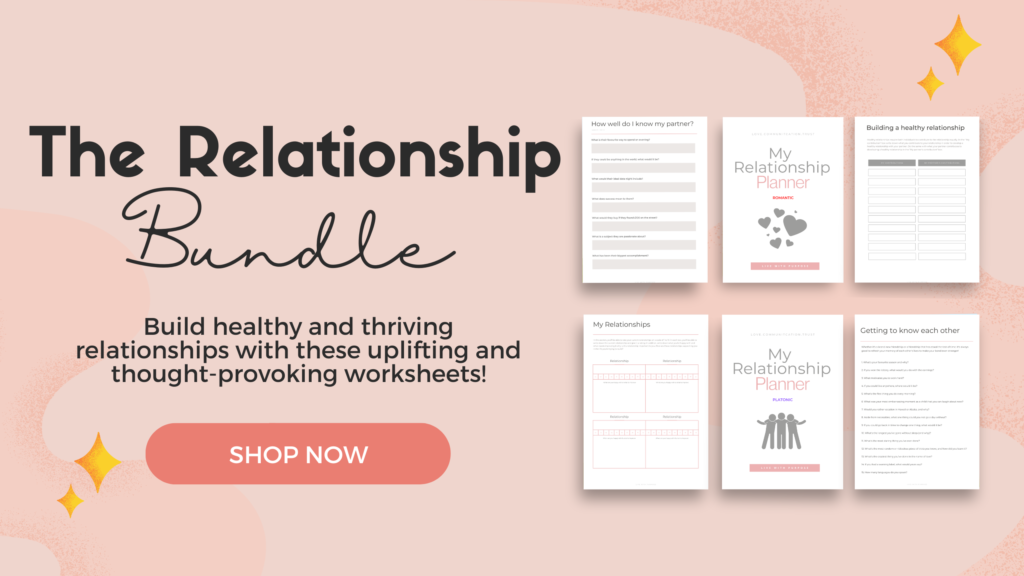
Embracing the Positive Aspects of Being Alone:
1. Self-Discovery:
Being alone provides an opportunity for self-discovery. It allows you to explore your thoughts, feelings, and interests without external influences. Use this time to reflect on your goals, values, and aspirations. Self-discovery is a crucial aspect of personal growth and can lead to a deeper understanding of oneself.
2. Independence:
Embracing solitude fosters independence. When you’re comfortable being alone, you become more self-reliant and less reliant on others for your happiness. This independence can empower you to make decisions based on your own needs and preferences, leading to a more authentic and fulfilling life. 🥰
3. Creativity:
Solitude often sparks creativity. When you’re alone with your thoughts, you have the mental space to generate new ideas, think critically, and engage in creative pursuits (yaay). Many artists, writers, and innovators find inspiration in moments of solitude, leading to the creation of meaningful and impactful work. 🎨
4. Rest and Rejuvenation:
Being alone allows for rest and rejuvenation. In a world filled with constant stimuli, taking time for solitude can be a form of self-care. It provides an opportunity to relax, recharge, and focus on activities that bring you peace and joy, contributing to overall well-being.
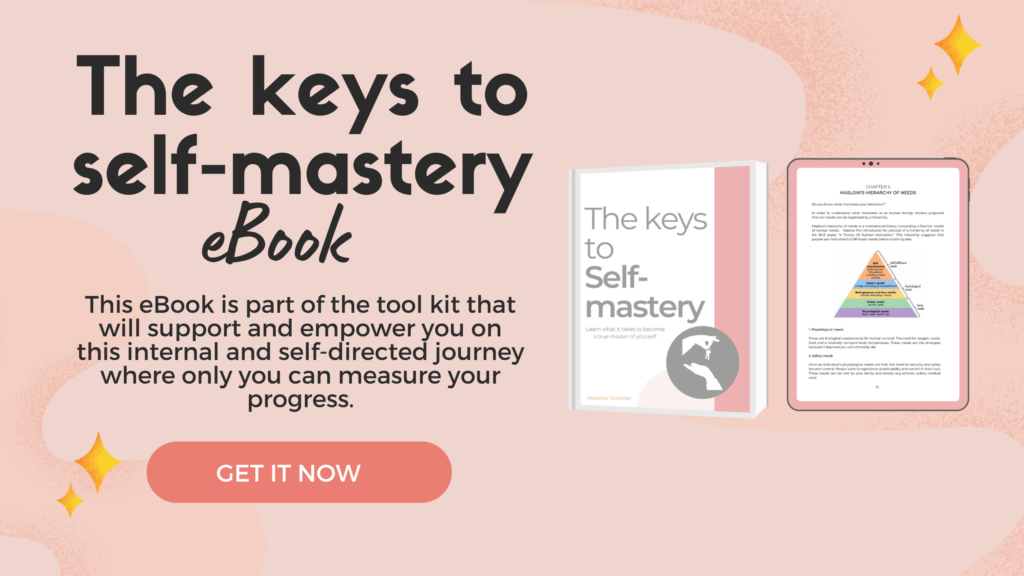
Addressing the Challenges of Feeling Lonely:
1. Cultivating Meaningful Connections:
If loneliness arises from a lack of meaningful connections, focus on cultivating relationships that nourish your soul. Seek out individuals who share your values and interests. Join clubs, organisations, or communities where you can meet like-minded people. Focus on getting yourself out there. Quality connections are often more fulfilling than a large social circle. 🫂
2. Volunteering and Giving Back:
Engaging in volunteer work or contributing to your community can alleviate feelings of loneliness. By helping others, you not only make a positive impact on the world but also connect with individuals who share a common purpose. Volunteering provides a sense of belonging and fulfillment.
3. Seeking Professional Support:
If loneliness becomes a persistent and overwhelming emotion, maybe consider seeking professional support. A therapist or counselor can provide guidance and a safe space to explore the root causes of loneliness. Addressing these issues with professional help can lead to a more fulfilling and connected life. 🫶
Finding Balance:
The key to a fulfilling life lies in finding a balance between being alone and fostering meaningful connections. Embrace solitude as a time for self-discovery, creativity, and rejuvenation. At the same time, actively cultivate relationships that bring joy and fulfillment. Recognise that both states are essential for a well-rounded and satisfying life. 💕
Conclusion
Being alone and feeling lonely are two distinct experiences, each with its own set of opportunities and challenges. Embracing solitude allows for self-discovery, independence, creativity, and rest. However, if loneliness creeps in, it’s crucial to address it by cultivating meaningful connections, volunteering, or seeking professional support. You are not alone. ❤️
Understanding the nuances between being alone and feeling lonely empowers you to navigate both states with intention and purpose. Ultimately, finding a balance between solitude and social connections contributes to a rich and fulfilling life. Embrace the positive aspects of being alone, foster meaningful connections, and savor the journey of self-discovery in this beautiful dance between solitude and companionship.
Pin this post for a reminder 📌 👇
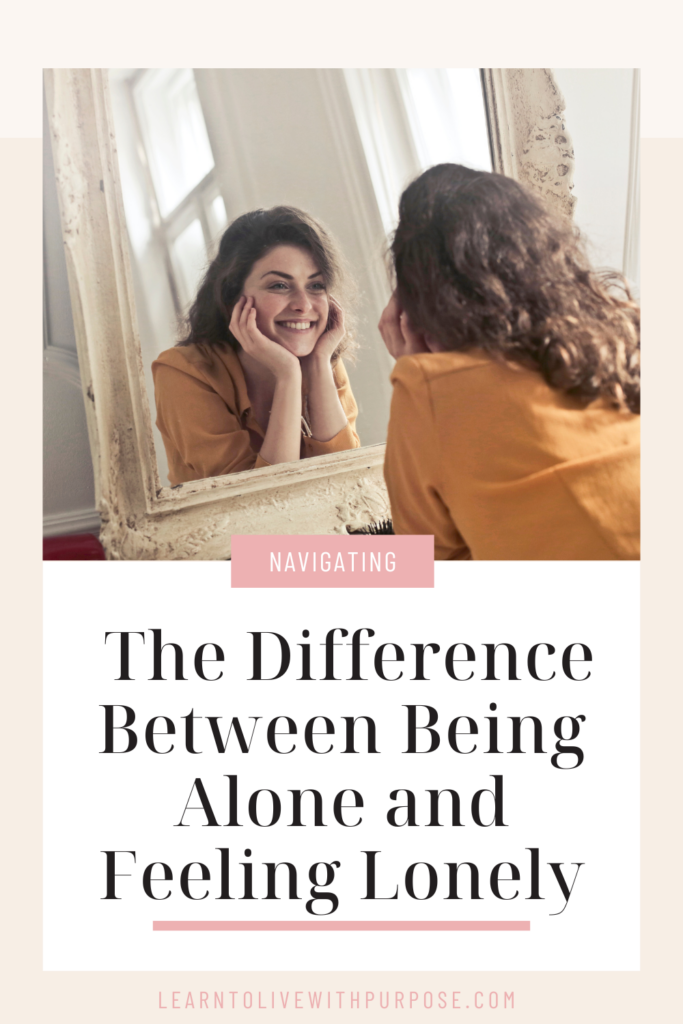
Related Blogs
Things to Say “No” to for you to Live a Happier Life
How to Stop Settling For Less Than You Deserve
How to Become the Best Version of Yourself: A Guide For 20-Somethings
Do you find yourself in a rut and want to stop living from paycheck to paycheck every month? Want to break the cycle and learn how to stop having little money at the end of each month?
The definition of living from paycheck to paycheck is a lifestyle in which a person is using most or all of their monthly income to cover their monthly expenses, with no money in their savings.
Having to worry about whether you can pay your bills, the late fees that can occur when you miss a payment and going into debt takes a toll on you both financially and mentally.
How far are you from living paycheck to paycheck? 🤔
If most of the money from your paycheck is covering your monthly expenses, you may find yourself pretty close. Consider these factors:
👉 Do you have savings?
👉 If you do have savings, is it enough to cover your expenses for at least a month?
👉 Do you have a credit card?
👉 If you do have a credit card are you confident enough you can pay your balance off in full at the end of the month?
This lifestyle is becoming increasingly popular, with 1 in 3 UK households living this way and 78% of American full-time workers.
You don’t have to live like Mr. Krabs or Julius from Everybody Hates Chris in order to keep money in your bank account. (I know those are two very extreme examples but stay with me here 😂)
You are very much capable of achieving your financial goals. Whether that’s an extra £1,000, £10,000 or £100,000 a month. It’s doable only if you believe it’s doable.
Let’s get this mula. 💰
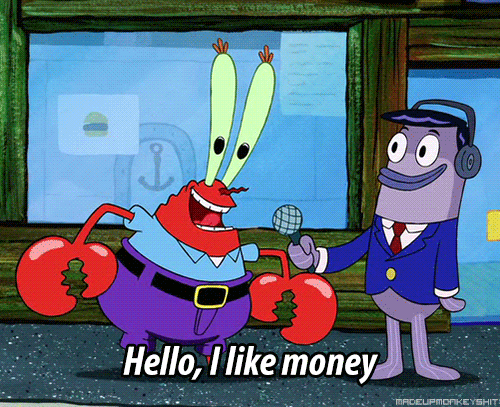
Here are the top 10 ways to stop living from paycheck to paycheck and enjoy extra money at the end of the month.
This post contains affiliate links. Read my full disclosure policy here.
1. Track your spending
The first step to having more money at the end of the month after your expenses is to write down what you spend every month and compare it to your monthly income.
Track both your card purchases and cash purchases to get a better understanding of your spending habits. You will then begin to notice unnecessary spending, overspending and bills that can be reduced. True financial wealth is built when you spend less than you make and to do that you need to understand where your money is going.
Cancel subscriptions you’re no longer using and understand that there’s food at home and you don’t need to be on UberEats and Deliveroo every day are usually the top things people recognise when they thoroughly go through their finances.
Need help with keeping track of your spending? Check out my Finance Bundle here 👉 FINANCE BUNDLE
2. Decrease your spending
Easier said than done, yes. However, the key to cutting back is to challenge yourself to cut back £50 a week on groceries or an amount that is in line with your budget. It’s best to cut back in increments as it is a more manageable approach than cutting back a large sum at the beginning.
Try to reduce your spending in your variable expenses by as little as £10 or £25 a month as there’s only so much you can do with your fixed expenses but trying to get a better deal won’t hurt! (I talk about fixed expenses in my 4th tip)
These extra savings will add up quickly and help you on your way to saving more each month.
3. Make savings automatic
Saving money is as important as making money.
An automatic savings plan is quite simple, you just need to schedule a recurring deposit from your bank account. How much you should deposit depends on your financial situation and won’t subsequently hurt you in the long run.
Most automatic savings are locked in or have penalties for early withdrawal making dipping in and out of your savings a lot harder than usual making it a great option for saving!
When you have a year’s worth of savings in your bank you feel better equipped to deal with life’s unexpected challenges. Even if you just start with £50 a month you will feel more confident with handling your finances.
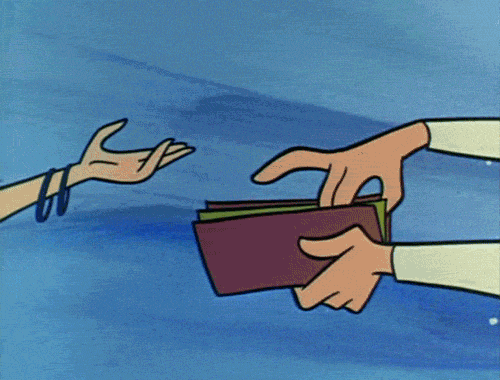
4. Evaluate fixed outgoings
Write out all of your fixed outgoings such as your rent, electricity, gas etc. Look at each expense and see if these can be reduced, even if it means switching a provider or living in a less expensive area.
You could have a six-figure income and still always end up broke at the end of the month if you live in a high-cost city. The cost of fixed outgoings is one of the main reasons for living from paycheck to paycheck, so it’s good to evaluate it at least every three months.
Here are some fixed outgoings you could consider reducing:
🏠 Rent/Mortgage
🚘 Transport
💡 Utilities
🏥 Insurance
📺 Subscriptions
🎭 Entertainment
📱 Phone Bill
🌐 Internet
5. Create a budget
Creating a monthly budget that clearly shows when money comes in and where it goes is a great way to ensure that you will always have enough money for the things that you need.
A lot of people associate budgeting with restrictions and a lot of hassle. However, budgeting can save you money and allow you to have more to spend by helping you make the most of your hard-earned money.
People who do not have or stick to their budget tend to save less money than people who do. This is because when you budget you assign your money to categories, giving yourself a “cap” on your spending for each thing that you regularly spend your money on.
Remember to put some money aside for fun! Budgeting shouldn’t restrict you from being able to live a well-rounded life. It stops you from spending like you have an endless flow of money that comes out of nowhere.
Related: A fan of affirmations? Check out my 25 Affirmations for Financial Abundance > GIMME GIMME GIMME
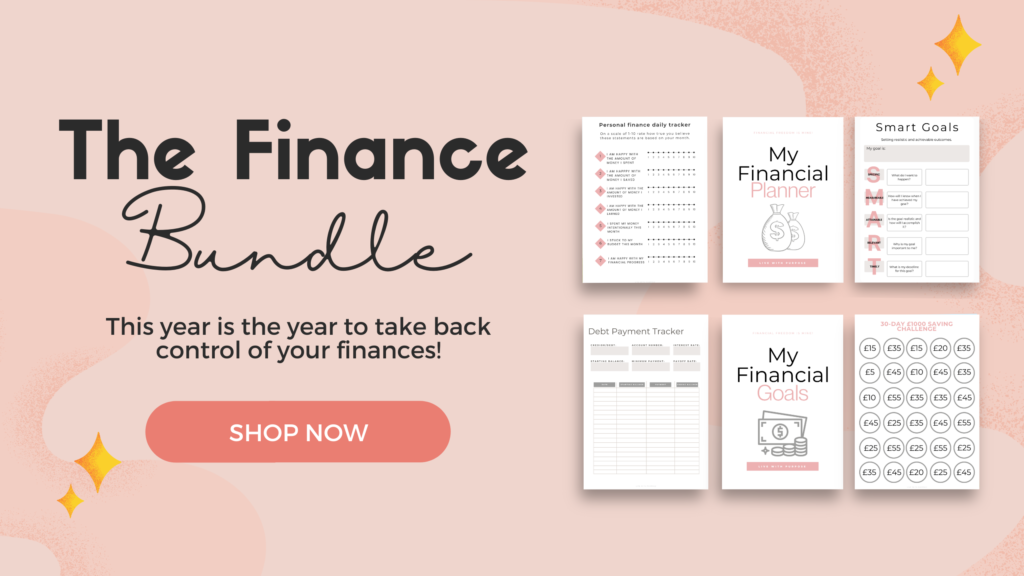
6. Find the fun in frugal living
Sure, cutting back on extras is not one of the most exciting activities to do but living frugally definitely has its monetary benefits. Contrary to popular belief, frugal living doesn’t mean buying everything that is cheap and not buying things simply because they’re expensive.
Living a frugal lifestyle means being smart with your money and not wasting your money on things you actually have no need for. This lifestyle does require a decent amount of self-discipline but you’ll definitely see the reward in your bank account.
Frugal living = NO IMPULSE BUYING
7. Increase your income
I’m sure you knew this one was going to be on the list! But don’t be fooled, an increase in income doesn’t mean that it can save your paycheck to paycheck problems.
As our income increases our spending habits seem to do the same, which leaves us back at square one. If you have a solid budget, spending responsibly and you’re still struggling to make ends meet, then making more money is the way to cure your financial woes.
Think about going to classes or teaching yourself skills that could increase your salary at work. Alternatively, you can pick up a side hustle/ second job that provides more immediate cash such as being an uber driver or a freelancer.
Heather’s Hot Tip: While your income increases try to keep your expenses the same (less is even better) don’t get caught up in the flashy lifestyle trying to prove a point to others. The only person that needs to know you got money is you. 🤷🏾♀️
8. Change your money mindset
Having a limited belief about the abundance of money that you can have will hold you back financially in life. Having enough money is maybe enough to survive but not enough to live life to the fullest. We all deserve to live the life we want to live, with the food we’d like to eat, and the places we’d like to visit.
If you find yourself living from paycheck to paycheck then you’ve probably cultivated a scarcity mindset in relation to money.
Here is a list of ways to help shift your mindset on money:
💰 Change your money script (Instead of telling yourself “ I’ll never be able to afford that” tell yourself “ I always have more than enough money”)
💰 Create a vision board of the life you want to live
💰 Set bigger monetary goals
💰 Think of money as a tool, not a result.
Want some help to turn yourself into a financial badass? Yes? Well, take a look at one of my favourite money mindset books 👉 SHOW ME 😱

9. Get an accountability partner
With any goal, it’s important to have a cheerleader by your side. Having someone that you’re accountable to will help you stick longer to your money goals as you know that someone is “watching” you. 👀
Accountability partners are also great for keeping you motivated as saving and spending your money wisely is something you should be in for the long haul and there will be times when you’ll feel tempted to splurge and give up, so having someone there to support you will make the journey a lot smoother.
You: I’m hungry, let’s get Mcdonalds
Accountability Partner: Nuh-uh you’re saving, you got food at home.
Bamn! you just saved some coins. 👛
10. Always keep going
It can be deflating if you mess up with your budget and overspend in a few categories. Don’t give in to the temptation of starting afresh the next month. Continue to track throughout the month so you can see what you need to change and by how much.
Over time your budget will evolve such as an overhead increase or a new addition to your family. Recognizing that you are overspending inconsistently in a particular area can help you know if you need to increase the budget in that area or cut back on others.
You got this. 🤞
Well! Those are my top 10 tips for ways to stop living paycheck to paycheck. Which one of these tips will you be implementing to help save you some extra dough at the end of the month? Let me know in the comments!
Pin this post for a reminder 📌 👇
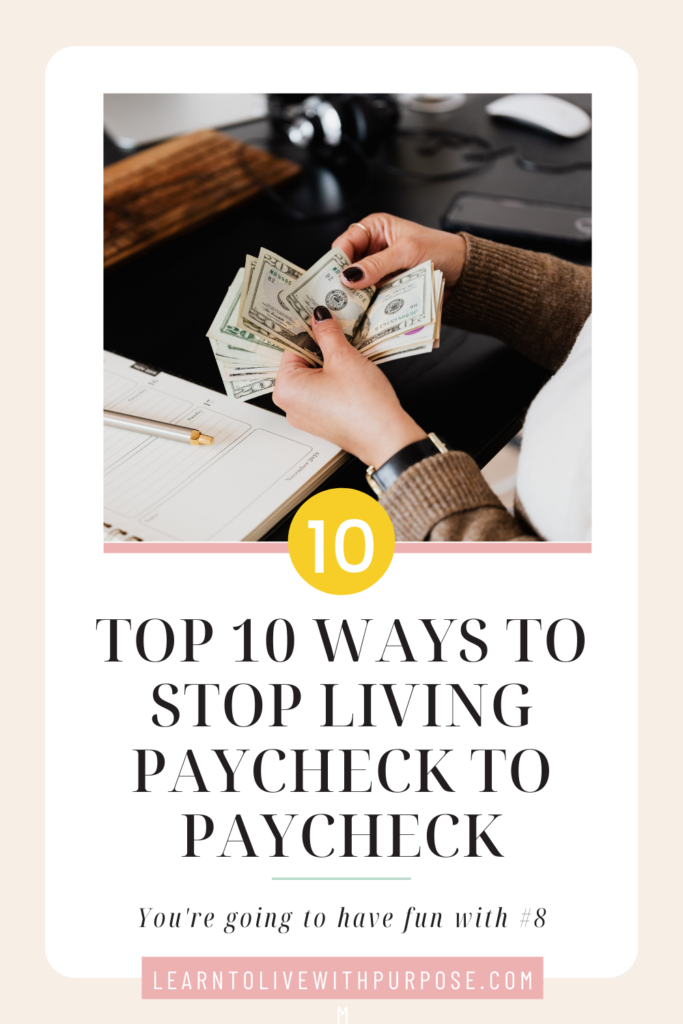
Related Blogs
How to improve your life one day at a time
Did you know that people on my email list sometimes get exclusive discounts on my products? Join the community and save yourself some coins!
Freshly-squeezed inspiration, and no-nonsense tips + tricks to improve your life delivered to your inbox weekly.
Subscribe to my newsletter
Subscribe
You're all signed up!
Be sure to whitelist our email address so that all the goodies make it to your inbox.
